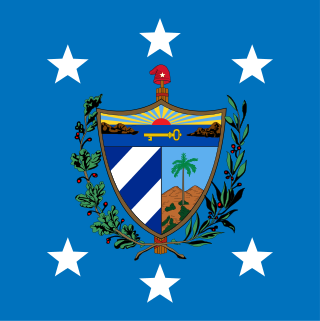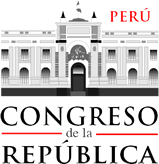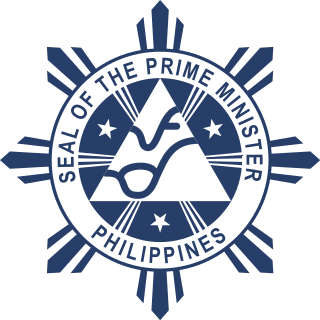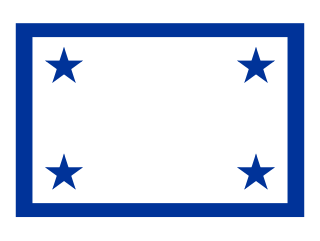
The president of Cuba, officially the president of the Republic of Cuba, is the head of state of Cuba. The office in its current form was established under the Constitution of 2019. The President is the second-highest office in Cuba and the highest state office. Miguel Díaz-Canel became President of the Council of State on 19 April 2018, taking over from Raúl Castro, and has been President of Cuba since 10 October 2019.

Even before attaining its independence from Spain, Cuba had several constitutions either proposed or adopted by insurgents as governing documents for territory they controlled during their war against Spain. Cuba has had several constitutions since winning its independence. The first constitution since the Cuban Revolution was drafted in 1976 and has since been amended. In 2018, Cuba became engaged in a major revision of its constitution. The current constitution was then enacted in 2019.

The Council of Ministers is the main collective decision-making body of the Government of Spain, and it is exclusively composed of the Prime Minister, the deputy prime ministers and the ministers. Junior or deputy ministers such as the Secretaries of State are not members of the Council. The Monarch may also chair the Council when needed on the invitation of the Prime Minister.

The Congress of the Republic of Peru is the unicameral body that assumes legislative power in Peru. Due to broadly interpreted impeachment wording in the Constitution of Peru, the President of Peru can be removed by Congress without cause, effectively making the legislature more powerful than the executive branch. Following a ruling in February 2023 by the Constitutional Court of Peru, the body tasked with interpreting the Constitution of Peru and whose members are directly chosen by Congress, judicial oversight of the legislative body was also removed by the court, essentially giving Congress absolute control of Peru's government. Since the 2021 Peruvian general election, right wing parties held a majority in the legislature. The largest represented leftist party in Congress, Free Peru, has subsequently aligned itself with conservative and Fujimorists parties within Congress due to their institutional power.

The president of the Council of Ministers of Peru, informally called Premier or Prime Minister, is the head of the cabinet as the most senior member of the Council of Ministers. The president of the Council of Ministers is appointed by the president of Peru.

The Republic of Peru is a unitary state with a multi-party semi-presidential system. The current government was established by the 1993 Constitution of Peru. The government is composed of three branches, being executive, judicial, and legislative branches.

The prime minister of the Philippines was the official designation of the head of the government of the Philippines from 1978 until the People Power Revolution in 1986. During martial law and the fourth republic, the prime minister served as the head the Armed Forces of the Philippines. A limited version of this office, officially known as the President of the Council of Government, existed temporarily in 1899 during the First Philippine Republic.

The substantive and procedural laws of Cuba were based on Spanish Civil laws and influenced by the principles of Marxism-Leninism after that philosophy became the government's guiding force. Cuba's most recent Constitution was enacted in 2019.

The Council of State of Cuba is a 31-member body of the government of Cuba, elected by the National Assembly of People's Power. It has the authority to exercise most legislative power between sessions of the National Assembly of People's Power, subject to its approval, and to call the National Assembly of People's Power into session between its scheduled twice yearly sessions.

The National Assembly of People's Power is the supreme organ of power of the Republic of Cuba. It is the only branch of government in the state, and per the principle of unified power, all state organs are subservient to it. It is currently composed of 470 representatives who are elected from multi-member electoral districts for a term of five years called consejos populares. The current President of the Assembly is Esteban Lazo Hernández. The Assembly only meets twice a year, with the 31-member Council of State exercising legislative power throughout the rest of the year. The most recent elections were held on 26 March 2023. The number of deputies was reduced from 605 to 470 for the 2023 election.

The Cabinet of Ministers of Venezuela (Spanish: Gabinete de Ministros de Venezuela is one of the bodies that make up the Venezuelan executive in that country's presidential system, alongside the Council of Ministers. The Cabinet is headed by the president of Venezuela, and his corresponding vice president. The purpose of the ministries is to create, adopt, follow and evaluate policies, strategies, programs and projects in accordance with the constitution and the laws of the republic.

The prime minister of Cuba, officially known as the president of the Council of Ministers between 1976 and 2019, is the head of government of Cuba and the chairman of the Council of Ministers (cabinet). The prime minister is the third-highest office in Cuba, after the First Secretary of the Communist Party of Cuba and the President of Cuba, and the second-highest state office.

The Constitution of Uruguay is the supreme law of Uruguay. Its first version was written in 1830 and its last amendment was made in 2004.

Miguel Mario Díaz-Canel y Bermúdez is a Cuban politician and engineer who is the 3rd and current First Secretary of the Communist Party of Cuba. As First Secretary, he is the most powerful person in the Cuban government. Díaz-Canel succeeds the brothers Fidel and Raúl Castro, making him the first non-Castro leader of Cuba since the revolution.
Roberto Tomás Morales Ojeda is a Cuban physician and politician who served as a Vice President of Cuba. He is a member of the Politburo of the Communist Party of Cuba (PCC) and, between 2010 and 2018, served in the Council of Ministers as Minister of Public Health. Currently, he is the secretary of organization of the Central Committee of the Communist Party of Cuba.
Adel Onofre Yzquierdo Rodríguez is a Cuban politician and engineer.

The Ministry of the Revolutionary Armed Forces of Cuba, also known as the Ministry of the FAR, is a Cuban military agency which is the executive body of the Cuban Revolutionary Armed Forces. The current Minister of the FAR is Corps General and longtime Chief of Staff Álvaro López Miera.

The Congress of Cuba was the legislature of Cuba from 1902 until the Cuban revolution of 1959.

The Spanish government departments, commonly known as Ministries, are the main bodies through which the Government of Spain exercise its executive authority. They are also the top level of the General State Administration. The ministerial departments and their organization are created by Royal Decree signed by the Monarch and the Prime Minister and all of them are headed by a Cabinet member called Minister.

Vicente Antonio Zeballos Salinas is a Peruvian politician who served as Prime Minister of Peru from September 2019 to July 2020, under President Martín Vizcarra's administration. Prior, he served as Minister of Justice and Human Rights.















